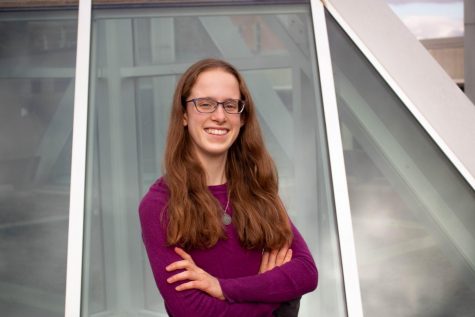UNI Teacher Education program adjusts to COVID-19
Apr 10, 2020
For students in K-12 schools nationwide, their classroom has suddenly become the kitchen table as states close schools to mitigate the spread of COVID-19. It’s been a major adjustment for these students, their parents and their teachers. But there’s another group who’s had to adjust to these abrupt school closures: student teachers and students completing classroom field experiences.
This semester, over 250 student teachers from UNI were out on placement across the state of Iowa, the country and even some overseas. Now, almost all of them have had their placements cut short.
Mary Donegan-Ritter, interim department head of UNI’s Department of Teaching, said that the state of Iowa requires student teachers to have 14 weeks in the classroom, although UNI requires 16. This semester, most students had gotten only 8-10 weeks before the pandemic led Iowa Governor Kim Reynolds to close the state’s schools, first through April 13 and then through April 30. In closing the schools, Reynolds also waived all remaining classroom experience for student teachers, meaning that they will still be able to receive their teaching licenses.
“We all will be able to get our licenses as long as we pass the course and are recommended for licensure by the school,” said Lauren Winter, a Spanish teaching major completing her student teaching in West Dubuque High School in Epworth, IA. “I’m very glad that this won’t affect my ability to get a license, but it definitely stinks not getting as much time in the classroom and seeing my students.”
In lieu of classroom experience, students like Winter are now participating in online seminars led by their student teaching coordinators, discussing topics pertinent to new teachers.
“They’re learning more about IEPs (Individualized Education Plans); that’s an area a lot of beginning teachers ask for more help with,” Donengan-Ritter said. “Classroom management, how to interview for a job virtually, using video conferencing—the student teaching coordinators are supporting them through all that.”
Winter said that her coordinator has been holding weekly meetings with the class via Zoom.
“We’ve all been taking turns presenting various types of online platforms that can be used for learning,” she said. “My coordinator has been very nice to us and hasn’t loaded us with a bunch of extra work.”
Some student teachers are also continuing to work with their mentor teachers and helping with online operations at their assigned school, but Donengan-Ritter said that is optional and at the invitation of the cooperating teacher. Not all school districts are providing online educational materials for their students. According to the latest guidance from Gov. Reynolds, K-12 schools must choose one of three distance learning options during the April 13-April 30 school closure: required continuous learning, voluntary educational enrichment opportunities or no online learning activities at all. Choosing the third option means that schools must make up the missed days at a later date.
Student teachers weren’t the only UNI students affected by the school closures. Teaching students doing Level 1, 2 or 3 field experiences have also found themselves out of luck.
Ashley Bodkin, a sophomore elementary education major, was scheduled to start her Level 2 field experience after spring break. She said she was “very disappointed” when she learned it was cancelled.
“I was supposed to be in a kindergarten classroom at a really great school, and now that is an experience I have missed out on,” she said.
While their required hours have also been waived by the state, the UNI Department of Teaching is still trying to give students a positive and beneficial “virtual field experience.” Donengan-Ritter said that field experience coordinators are using videos to simulate the classroom experience. For example, if a student was assigned to a third-grade classroom, they will watch video footage of real third grade classes.
“Our faculty are working hard and our students are adjusting to different assignments,” she said. “It’s not easy, but I’m impressed by the creativity and the thinking outside the box on behalf of our students and faculty.”
She said that most professors in the College of Education already have experience teaching in an online format thanks to the many online classes offered through their graduate program, so the transition has been relatively smooth for many of the teacher education faculty.
Bodkin said that she was initially worried about how the cancellation of her field experience would impact her ability to meet her requirements for the education program, but her coordinator has helped them work through the changes.
“My coordinator has been great at being flexible and making sure we feel prepared for moving on to Level 3s,” she said. “We are still getting the practice of creating and teaching lesson plans, even though we aren’t in an actual classroom. While I’m sad I never got to be in an actual classroom this semester, I still think this online experience has been beneficial.”
“It’s certainly not the ideal, and we’re concerned about our students feeling overwhelmed with the adjustment—nobody signed up for an online experience,” Donegan-Ritter said. “[But] there are opportunities for us to think about what makes a good online learning experience and also be more prepared for the future. We’re trying to look at what those opportunities are.”















